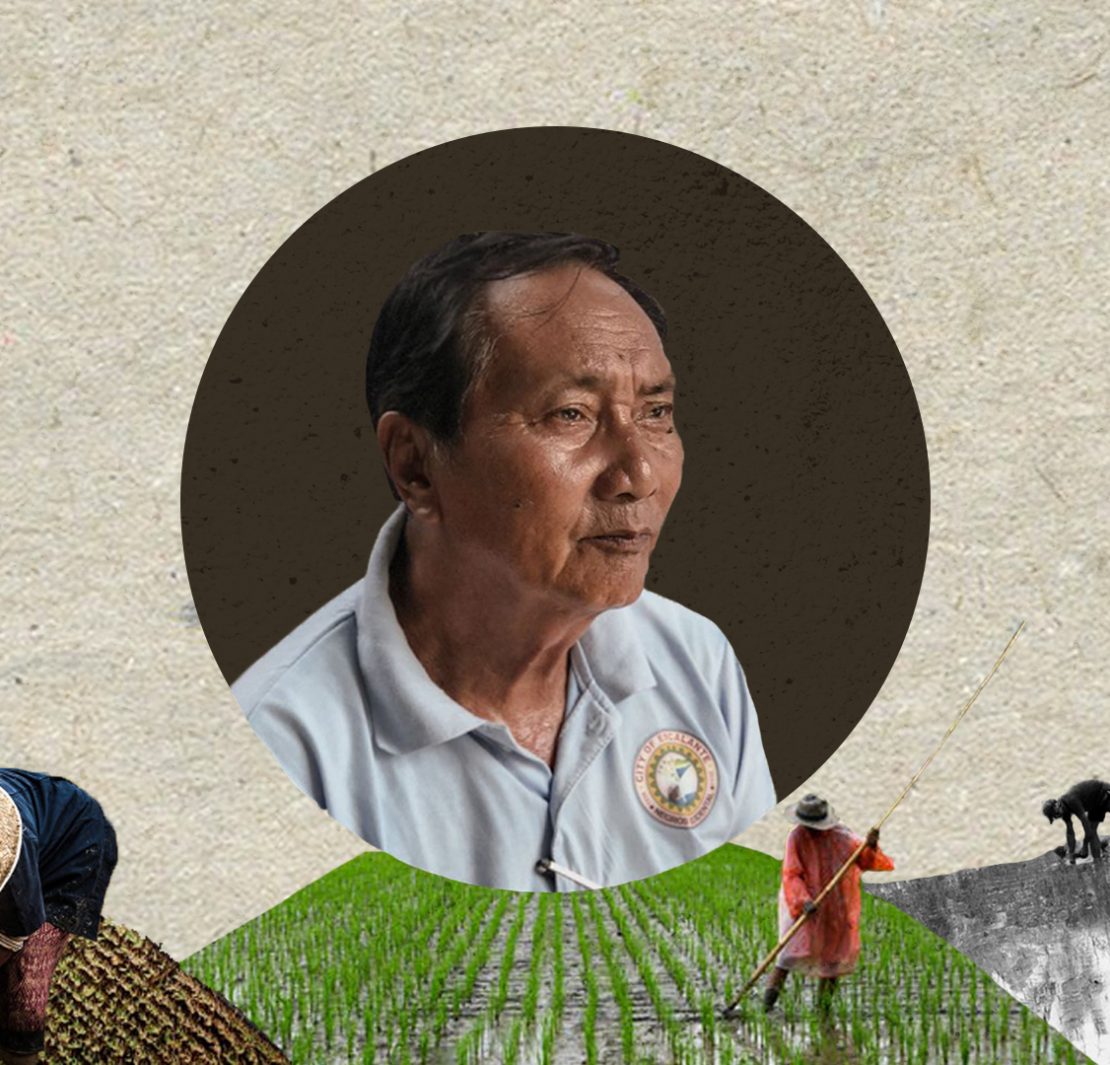The murder of 72-year-old Bernardino “Toto” Patigas, a councilor seeking reelection in Escalante City, Negros Occidental on Monday, Apr. 22 would have gone largely unnoticed and be considered another election-related incident of violence.
Except that his death appears to be part of a gruesome cleansing program of sorts targeting progressive personalities that include human rights advocates and leaders of labor and peasant groups in the Visayas.
It took Manila-based mainstream newspapers two days to report how Patigas, driving a motorcycle on his way home to Barangay Washington near sundown, was shot and killed by one of two men on another motorbike as he passed the Escalante National High School premises.
In a tweet, veteran journalist Inday Espina Varona said the first bullet hit Patigas’ leg, causing him to stop his vehicle. The assassin then went for the councilor’s forehead – a failsafe shot to ensure he would not survive.
The Inquirer reported that eyewitnesses were present and that the gunman was wearing neither mask nor helmet. No one is willing to testify however, for fear of retaliation.
The Makbayan bloc of the House of Representatives has now formally called for an investigation into Patigas’ death. Bayan Muna Rep. Carlos Zarate, his party-list group’s coordinator for Escalante City, claims the councilor was “assassinated due to his political beliefs.”
Escalante survivor
Patigas was no stranger to violence. Until his death, he was considered the last survivor of the September 1985 Escalante massacre where police and paramilitary men killed at least 20 rallyists and wounded 20 more among those who staged a rally in front of the then Escalante municipal hall.
The gathering was prompted by outrage over the abuses of the Marcos dictatorship.
Patigas, then in his 40’s, decided to go into human rights advocacy after his ordeal and organized Mothers and Relatives Against Tyranny for victims and families affected by the Escalante massacre and martial law.
He also set up the Northern Negros Alliance of Human Rights Advocacy (NNAHRA) for farmers.
Friends eventually urged Patigas to join mainstream politics to influence policy-making at the local level.
He ran unsuccessfully in 2010 and 2013. In 2016, he won as councilor and was made chair of the human rights committee of the Escalante city council.
Patigas’ death is considered a hurtful blow to people’s organizations and militant groups in the Visayas.
Rep. Zarate’s resolution calling for a House investigation said the death of Patigas or “Tatay Toto” is only “the latest in a string of violent incidents stemming from his beliefs, his human rights advocacy, his efforts to push forward the interests of peasants and sacada in Negros.”
One victim among many
Concerned organizations have expressed their outrage.
The Canada International Coalition for Human Rights in the Philippines (ICHRP) said Patigas is just the “latest victim (in the) growing list in the killing fields of Negros,” adding that it finds “an entrenched oligarchy aided by the military and police” responsible for the “reign of terror over the working people of the land.”
The Human Rights Watch described Patigas’ death as “a horrific attack that needs to be investigated independently” while the umbrella group Karapatan-Negros where Patigas’ NNAHRA was a member organization, noted that individuals with progressive mindsets remain “consistent targets” of operations by armed members of government security forces.
More alarming is the observation that Patigas’ murder is not an isolated attack against a person with progressive leanings.
The Concerned Artists of the Philippines noted that before last Monday’s incident, nine farmers were killed in Sagay, Negros Occidental on Oct. 20, 2018.
Then, 14 farmers in Canlaon City and the towns of Manjuyod and Sta. Catalina were allegedly summarily executed on Mar. 30, despite police claims that the victims fired at them first.
A separate news report said that on Black Saturday, 51-year-old Walter Balayo, leader of a farmers’ group federation called Task Force Mapalad was also shot dead in Sagay City.
It added that Patigas was already the third Negros councilor slain this April after Jolomar Hilario of Moises Padilla town in Negros Occidental and Miguel Dungog in Negros Oriental. (The report did not make it clear however, whether the two councilors’ deaths are also related to peasant or labor advocacies.)
The Inquirer noted that Patigas’ murder “came a year after posters with his picture and those of 62 others were displayed on walls in Moises Padilla” in Negros Occidental.
Also on the posters was a photo of human rights lawyer Benjamin Ramos who was shot on November 6, 2018 in front of a convenience store in Kabankalan City, Negros Occidental.
Karapatan-Negros secretary general Clarissa Singson noted that both Patigas and Ramos received death threats before their murders.
And at least three hours after Patigas was shot on Monday, eight leaders of people’s organizations and militant groups in Negros, including Singson, received text messages that they would be next.
Unfortunately, those who take the chance are threatened, or worse, hurt or killed by those who do not want the current situation to change.
The need for change
Bayan Muna’s Zarate already said it clearly when he made the connection between Patigas’ murder and his advocacies. And it would be hardly be called audacious to trace a link between his death, the farmers who were killed before him, and the threats received by his friends.
Obviously, there are sectors who are disturbed by Patigas’ efforts to address issues concerning peasants and laborers. Otherwise, why bother to eliminate him?
The ICHRP was brazen enough to identify those responsible as “an entrenched oligarchy” as it asked President Duterte to “end the senseless war on the Filipino people, and stop the killing of children, farmers, indigenous peoples and the human rights defenders.”
While we do not mean to point fingers at specific perpetrators, we find reason to support the call to end the oppressive nature of any industry that puts farmers, peasants, sacada and other laborers at a gross disadvantage.
The fight that these people have been waging has been running for years. Instead of material assets, they pass on to their children a situation where all are saddled with debt and poverty. Lack of education is also a given since family members are regarded as farm hands first and foremost, instead of persons who need to go to school.
Apart from poverty and ignorance, these people also have to contend with the culture of violence, fear and impunity imposed by those with power and money.
Imagine yourself a farmer with a small piece of land, a huge intergenerational debt and no college degree. Imagine having dreams you can’t fulfill. Now, imagine being told you can seek changes in your situation, no matter how small. Would you not allow yourself that chance?
Unfortunately, those who take the chance are threatened, or worse, hurt or killed by those who do not want the current situation to change.
Oppressors are those who enjoy an environment where they have sole advantage. Oppressors do not want to share, nor see others benefit the way they do.
For this situation to remain, oppressors will hire anyone willing to help them preserve the status quo. In many cases, it is convenient to ask for help from legitimate security forces willing to cross the line for the sake of added income, or whose superiors’ continued tour of duty relies on local patronage and friendship with the oppressors.
Unfortunately, those who help oppressors can also come from the ranks of those they oppress. “Kapit sa patalim” accurately captures this picture.
At some point, oppressors must realize that although justice takes time, it arrives eventually. Power and money can only delay it at some point.
What is clear is that dreaming of a better life for oneself or family is not a crime. Patigas and those who died because of their advocacies could not be faulted.
Dreaming of change is an admirable thing. No one deserves death for having this dream.
Get more stories like this by subscribing to our weekly newsletter here.
Read more:
Parks, plazas and other public spaces are vanishing right before our eyes
Taxpayers deserve more than failed infrastructure projects
Does Caloocan City’s ban on short shorts reflect good governance?
Writer: CATHY CAÑARES YAMSUAN




